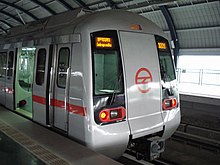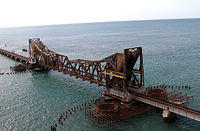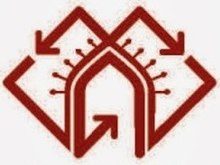E. Sreedharan
From Wikipedia, the free encyclopedia
| Elattuvalapil Sreedharan | |
|---|---|
 |
|
| Born | 12 June 1932 Karukaputhur, Palakkad, Kerala, |
| Other names | Metro Man |
| Alma mater | Government Victoria College, Palakkad, Kerala University College of Engineering, Kakinada, Andhra Pradesh (JNTUK) |
| Occupation | Civil engineer |
| Known for | Konkan Railway, Delhi Metro , Kochi Metro and Other Related Rail Developments |
| Awards | Padma Vibhushan, Padma Shri, Chevalier de la Légion d'honneur, Lifetime Achievement award,[1] Several honorary doctorates. |
Delhi Metro
Contents
Early life
E. Sreedharan was born on 12 June 1932 in Karukaputhur in the present-day Palakkad district of Kerala state.[8][9]His primary education was from Government Lower Primary School Chathannur near Pattambi in Palakkad district. He completed his education at the Basel Evangelical Mission Higher Secondary School and then went to the Victoria College in Palghat. He later-on completed his Civil Engineering degree from the Government Engineering College, Kakinada, Andhra Pradesh, presently known as JNTUK.E. Sreedharan and T. N. Seshan are classmates at BEM High School and Victoria College in Palakkad. Both of them were selected for Engineering in JNTU Kakinada, a university in a port town in Andhra Pradesh, however E. Sreedharan decided to pursue it, while T. N. Seshan decided to join MCC (Madras Christian College).[10]
Career as a lecturer
For a short period, Sreedharan worked as a lecturer in Civil engineering at the Government Polytecnic, Kozhikode[8][9] and a year at the Bombay Port Trust as an apprentice. He subsequently joined the Indian Engineering Service (IES), after clearing the Engineering Services Exam in 1953 conducted by the UPSC. His first assignment was in the Southern Railway as a Probationary Assistant Engineer in December 1954.Government career
Pamban Bridge
Kolkata Metro
In 1970, as the deputy chief engineer, he was put in charge of the implementation, planning and design of the Calcutta metro, the first ever metro in India.[8] Sreedharan not only completed this much heralded project but also laid down the foundation of modern infrastructure engineering in India. He was taken off this post in 1975.[11]Cochin Shipyard Limited
When Sreedharan joined the Cochin Shipyard in October 1979,[2] it was undergoing a phase of unproductivity. The production of its first ship MV Rani Padmini had been delayed for a long period.[11] When Sreedharan took over, he turned the fortunes of the shipyard around and made sure its first ship was built while he was its chairman and managing director (CMD). In 1981, under Sreedharan's leadership, the shipyard launched its first ship, the MV Rani Padmini.[12]On Contract
The 1,319 m (4,327 ft) long Konkan Railway bridge across the Zuari river in Goa.
Konkan Railway
He was promoted as general manager, Western Railway in July 1987, and in July 1989 elevated to the post of Member Engineering, Railway Board and ex-officio Secretary to the Government of India.[9] On his retirement in June 1990, the Government made it clear it still needed his services and he was appointed the CMD of Konkan Railway on contract in 1990 by the then railway minister, George Fernandes. Under his stewardship, the company executed its mandate in seven years. The project was unique in many respects. It was the first major project in India to be undertaken on a BOT (Build-Operate-Transfer) basis; the organisation structure was different from that of a typical Indian Railway set-up; the project had 93 tunnels along a length of 82 km and involved tunnelling through soft soil. The total project covered 760 km and had over 150 bridges. That a public sector project could be completed without significant cost and time overruns was considered an achievement by many.[who?][citation needed] Konkan Railway has been covered in the Extreme Railways program by Chris Tarrant as the one of the most difficult railway project to have been constructed in the world.[13]Delhi Metro
He was made the managing director of Delhi Metro Rail Corporation by then Delhi Chief Minister Sahib Singh Verma and by mid 1997 all the scheduled sections were completed by their target date or before, and within their respective budgets. Sreedharan was given the sobriquet of Metro Man by the media for his grand success in executing the completion of the Delhi Metro.[14] His stint in the Delhi Metro has been considered so successful and crucial to India that in 2005, he was awarded the Chevalier de la Légion d'honneur (Knight of the Legion of Honour) by the government of France, and the Padma Vibhushan by the government of India in 2008.[4] There were also demands by prominent political figures that Sreedharan be awarded the Bharat Ratna, the most prestigious civilian award in India.[15] He was particularly known for isolating his projects from political pressures and influences and winning political commitments for fast execution of projects.[16][17] He had announced that he would retire by the end of 2005, but his tenure was further extended to oversee the completion of the second phase of Delhi Metro. After 16 years of service with the Delhi Metro, Sreedharan retired from service on 31 December 2011.Kochi Metro
Model of Kochi Metro rail station
Lucknow metro logo
Lucknow Metro
Sreedharan has also been appointed as Chief Advisor for the Lucknow Metro [24] As per E. Sreedharan, Kochi metro was built in four years whereas Lucknow Metro will be completed in a period of two years and nine months, and that would be the fastest in India and the world till now.[25]Other Metros
He has been advising for the Jaipur Metro as well as DMRC has undertaken its implementation.[26] He has also been roped in as advisor for a proposed Metro rail system in Andhra Pradesh in the Visakhapatnam and Vijayawada (VGTM) areas, under the leadership of the Chief Minister Chandrababu Naidu.[27]Awards and accolades
- Railway Minister's Award (1963)
- Padma Shri by the Government of India (2001)[3]
- Man of the Year by The Times of India (2002)[28]
- Shri Om Prakash Bhasin Award for professional excellence in engineering (2002)
- CII (Confederation of Indian Industry) Juror's Award for leadership in infrastructure development (2002–03)
- One of Asia's Heroes by TIME (2003)[5]
- AIMA (All India Management Association) award for Public Service Excellence (2003)
- Degree of Doctor of Science (Honoris causa) from IIT Delhi.
- Bharat Shiromani award from the Shiromani Institute, Chandigarh (2005)
- Chevalier de la Légion d'Honneur (Knight of the Legion of Honour) by the government of France (2005)[3]
- Qimpro Platinum Standard (Business) National Statesman for Quality in India (2007)[29]
- CNN-IBN Indian of the Year 2007: Public Service (2008)[30]
- Padma Vibhushan by the Government of India (2008)[4]
- D.Lit. By Rajasthan Technical University, Kota, Rajasthan, in 2009[5]
- Degree of Doctor of Philosophy (Honoris causa) from IIT Roorkee, 2009.[5]
- Newsmaker of the Year by Manorama News in 2012.
- Sree Chithira Thirunal National Award, 2012[31][32]
- SR Jindal Prize (honorary) awarded by Sitaram Jindal Foundation, 2012.[33]
- TKM 60 Plus award for Lifetime achievement, 2013 by TKM College of Engineering.
- Degree of Doctor of Science (Honoris Causa) by Mahamaya Technical University on its first convocation (2013)[34]
- Rotary International for the sake of Honour Award (2013)
- Lifetime Achievement Governance Award by Grifles, 2013[1]
Biography
A Book on Sreedharan's life is 'Karmayogi: E. Sreedharante Jeevitha Katha' (Translated: The story of E. Sreedharan's life) is an authentic biography by M. S. Asokan. A short biography on E. Sreedharan was penned by P.V. Alby, named 'Jeevithavijayathinte Paadapusthakam' (translated: A Texbook on success in life). Both these books were top sellers in Kerala during the time Sreedharan took up his post on the Kochi Metro project as Delhi Metro Rail Corporation's principal advisor.[35] Another book on Dr E Sreedharan is " India's railway man- A biography of Dr. E Sreedharan "by Rajendra B Aklekar . This book has been endorsed by Dr Sreedharan and includes a signed note from him.Family
Sreedharan's wife is Radha Sreedharan. The couple has four children: eldest son Ramesh is one of the vice-presidents at Tata Consultancy Services; daughter Shanthi Menon runs a school in Bengaluru, another son, Achyuth Menon, is a doctor in the UK. Their youngest son is M. Krishnadas, who works at ABB INDIA LTDSee also
- Jaipur Metro
- Delhi Airport Metro Express
- Rapid transit in India
- Suburban rail in India
- Rail transport in India
- List of bridges in India
- Transport in India
- 1964 Rameswaram cyclone. E.Sreedhan's efforts in reconstruction of the Pamban Bridge.





No comments:
Post a Comment